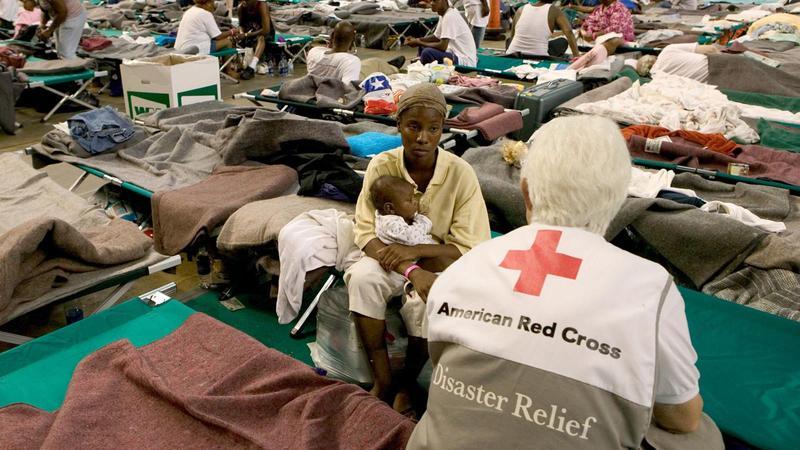What is Psychology of Disaster Relief
What is Psychology of Disaster Relief
September didn’t hold back in the natural disaster department. From Hurricane Harvey’s effects in Houston to Hurricane Irma’s path up the Caribbean and into Florida to a set of earthquakes in Mexico to Hurricane Maria’s devastation in Puerto Rico and elsewhere, it’s been a trying time for those affected. The need for disaster relief is urgent.
As a result, you’ve probably seen a million ways to pitch into the relief efforts. But with so many relief efforts, are people actually donating their own time and money to help out?
Plenty of research in psychology has looked at when and why people donate to charities. Some of that research has looked at disaster relief donations specifically. Although a handful of important factors have emerged, we’ll focus on two: victim blaming and self-help.
Thoughts About the Victims Shape Donations
In 2011, Hanna Zagefka and her colleagues published a set of studies testing people’s willingness to donate to disaster relief efforts. They came upon two important thoughts that people have about the victims…
Personal Responsibility. People are less willing to donate when they think the beneficiaries were responsible for their own situation. For example, when people think that poverty results from the personal attributes of the poor, they’re less likely to donate to related causes. By contrast, of course, people are more willing to donate if they think the problem is out of the victims’ control. Self-Help. People are less willing to donate if it seems that the victims haven’t done anything to help themselves. By contrast, people are more willing to donate if it seems that the beneficiaries have already taken steps to improve their situation.
Natural vs. Humanly Caused Disasters
The implication of the above points is that people would be more willing to donate to natural disasters like hurricanes and earthquakes than they would to humanly caused disasters.
The researchers tested this idea by having participants read about one of two large-scale crises: the 2004 Tsunami in the Indian Ocean or the 2003 Darfur genocide. Although each was described as killing thousands on people, the former was due to a “big tidal wave” while the latter was “at the hand of a rival ethnic group.”
The results showed that people found victims in Darfur more responsible for their fate and less committed to helping themselves, compared to victims of the Tsunami. As a result, people were less willing to donate.
But there’s a lot that was different between these two crises other than being naturally vs. humanly caused. So the researchers conducted another study in which they invented a hypothetical crisis about malnutrition in foreign countries. Sometimes they described these famines as products of drought and bad weather. Other times, they described them as products of armed conflict and civil war.
Even when the international crisis was the same, people donated less if they thought the cause was human than natural. And like with the previous study, it was because the victims seemed more blame-worthy and less involved in their own recovery.
We (Want to) Live in a Just World
People’s tendency to blame victims for their misfortune and avoid helping out in such cases relates to a theory in psychology called the Just World Belief hypothesis.
We often want to believe that our world is just and that when bad things happen, they happen for some reason. When someone is very poor, people need to see that person as responsible for their circumstance so they can hang onto a feeling that the world is fair. To think that bad things happen randomly to people can be uncomfortable!
So it seems that at least some of people’s reactions to these large-scale crises is filtered through their belief in a just world. If it was caused by humans, we can say that it’s their own fault and deserved what came to them. But when it’s impossible to pin the problem to a set of individuals like when a hurricane hits, we become more sympathetic and open our wallets.
As True Today As Ever
Of course, the role of victim blaming and self-help thoughts isn’t just true for the Asian Tsunami or Darfur or hypothetical famines. The recent devastation in Puerto Rico has called these concerns to the fore yet again. And it shows how even an undeniably natural disaster can evoke victim blaming and self-help attacks that get in the way of aid.
On Saturday, President Trump caused a stir with a series of tweets attacking Puerto Rico for their handling of the relief efforts. In one illustrative comment, he wrote: “They want everything to be done for them when it should be a community effort.”
Well isn’t that the definition of the “self-help” thoughts that Zagefka and her colleagues noted as an important determinant of aid! This view, if taken seriously by the public, could mean a decline in people’s willingness to contribute to relief efforts. So, it’s worth not taking it seriously, especially in light of the fact that Puerto Ricans have been actively involved in rebuilding their communities. Any deficit on their part may instead be due to a lack of support and resources.
Be the first to post a message!
